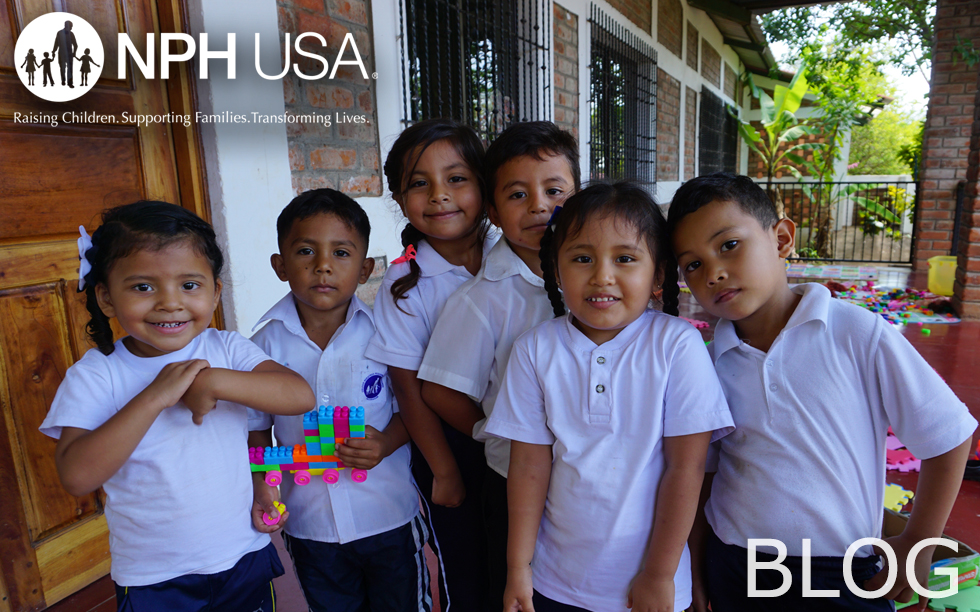Below is a post written by Gillian Garvey, NPH USA Summer Intern.
On Wednesday, June 24th, Dr. Edwin Vallecillo, the Director of Medical Services for Nuestros Pequeños Hermanos International (NPH), spoke alongside three other international organization leaders on a panel for the first event of the United Nations (UN) Civil Society Chat Series titled “Inspiring Global Action: Reframing Responsibilities to One Another and Our Communities During the COVID-19 Pandemic”. NPH has recently been recognized by the UN Department of Global Communications as a Civil Society Organization. This recognition is extremely significant because it reinforces NPH’s continuing commitment to pursuing multiple Sustainable Development Goals promoted by the UN.
Dr. Vallecillo began his presentation by providing background information about NPH. Nuestros Pequeños Hermanos, which translates to “Our Little Brothers and Sisters,” raises children, supports families, and transforms lives in nine countries throughout Latin America and the Caribbean. NPH provides a safe home, food, clothing, education, and healthcare to over 6,100 vulnerable, disadvantaged, and at-risk children.
This panel focused on how NPH has been serving as a role model for the best practices in responding to the COVID-19 outbreak in their countries. The first step NPH took to limit exposure to the virus was to create an Action Plan that outlined and implemented new protocols for the COVID-19 response along with the Pandemic Team. Examples of some of the protocols put in place included: limiting staff changes and large gatherings within the home, regular staff COVID-19 screenings, temporary school closings, and the additional purchases of PPE, vitamins, medication, thermometers, and more.
Educating the children and staff at NPH homes about the pandemic was crucial in order to keep them safe and aware of the health risks COVID-19 could bring. Everyone was taught about social distancing, no-contact greetings, and proper hand-washing techniques to use at the additional hand-washing stations.
In addition to caring for the children and staff at the homes, NPH continues to pursue outreach for areas surrounding the homes. NPH has provided donations of face masks, food, medication, and has also created plans for working families that have children with disabilities. To educate the community, NPH staff members have been going out to perform educational talks and training while also providing needed services.
NPH also operates the St. Damien Pediatric Hospital, which is the only pediatric hospital in Haiti. St. Damien’s staff has had to interact with many people in Haiti who don’t understand the virus or are unable to take the appropriate precautions to keep themselves and others safe. Unfortunately, many of the people who do recognize that the pandemic is a threat can’t afford medical supplies and can’t miss work to quarantine themselves. Since being selected by the Haitian Ministry of Public Health and Population to receive and treat all pediatric patients with COVID-19, St. Damien’s has purchased additional PPE, created new protocols, and held additional training for staff.
Other U.N. panelists included Victoria Edmonds, a representative for the Salvation Army, an organization that operates in 131 nations. Edmonds spoke about the numerous states and countries where the Salvation Army is currently providing medical supplies, food, shelter, COVID-19 testing, and many more services to people in need.
Muzaffer Baca, the Vice President of International Blue Crescent (IBC), an organization operating in the Middle East, Caucasus, Balkans and Horn of Africa with the goal to provide emergency services, educational opportunities, and community building discussed how his organization is providing emergency teams, medical supplies, and test kits to people in Syria, Yemen, and Libya.
Bimpe Bamgbose-Martins, the founder of the Strategy for Mentoring Initiative and Leadership Empowerment (S.M.I.L.E), an organization in Nigeria and the United States, explained the difficulties in running its youth empowerment programs due to physical distancing. All of the in-person programs that shape young people to become leaders and agents of change in their own societies were halted and suspended indefinitely. The programs were unable to transition to an online platform due to a large number of youth who don’t have access to the internet or internet-capable devices.
In case you missed the event, click here to view the recorded episode on YouTube.

No comments:
Post a Comment
Note: Only a member of this blog may post a comment.